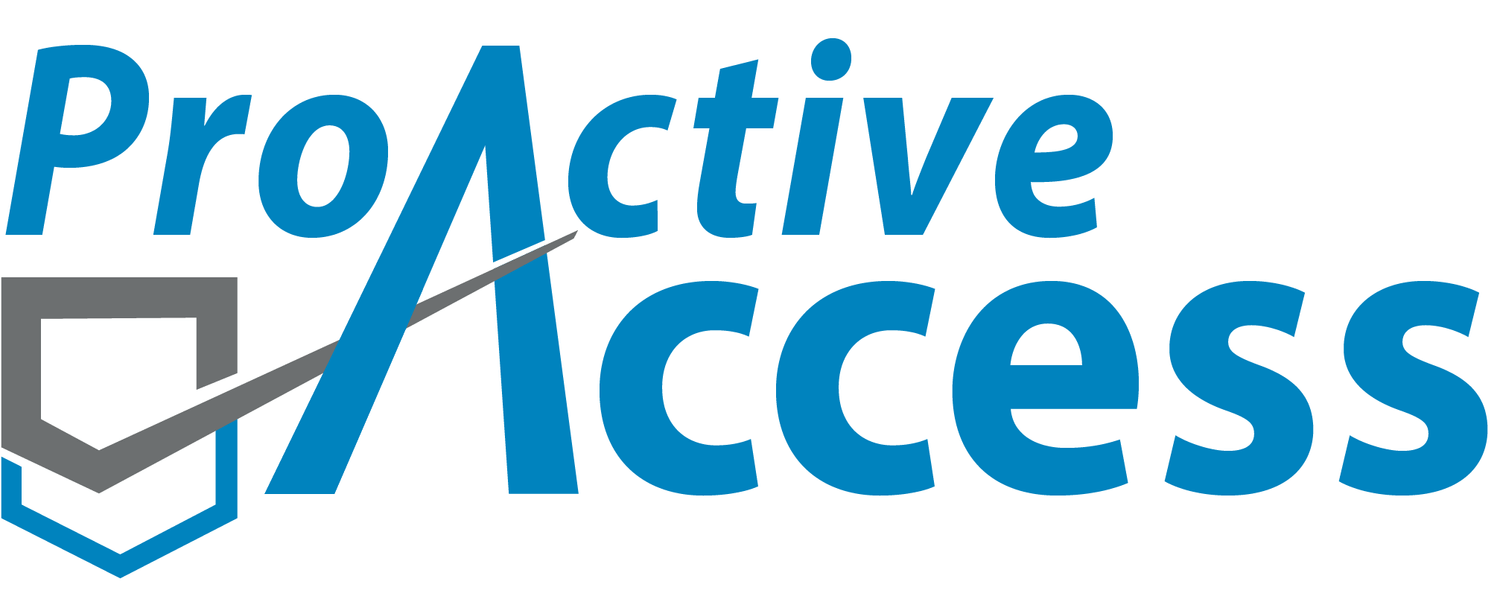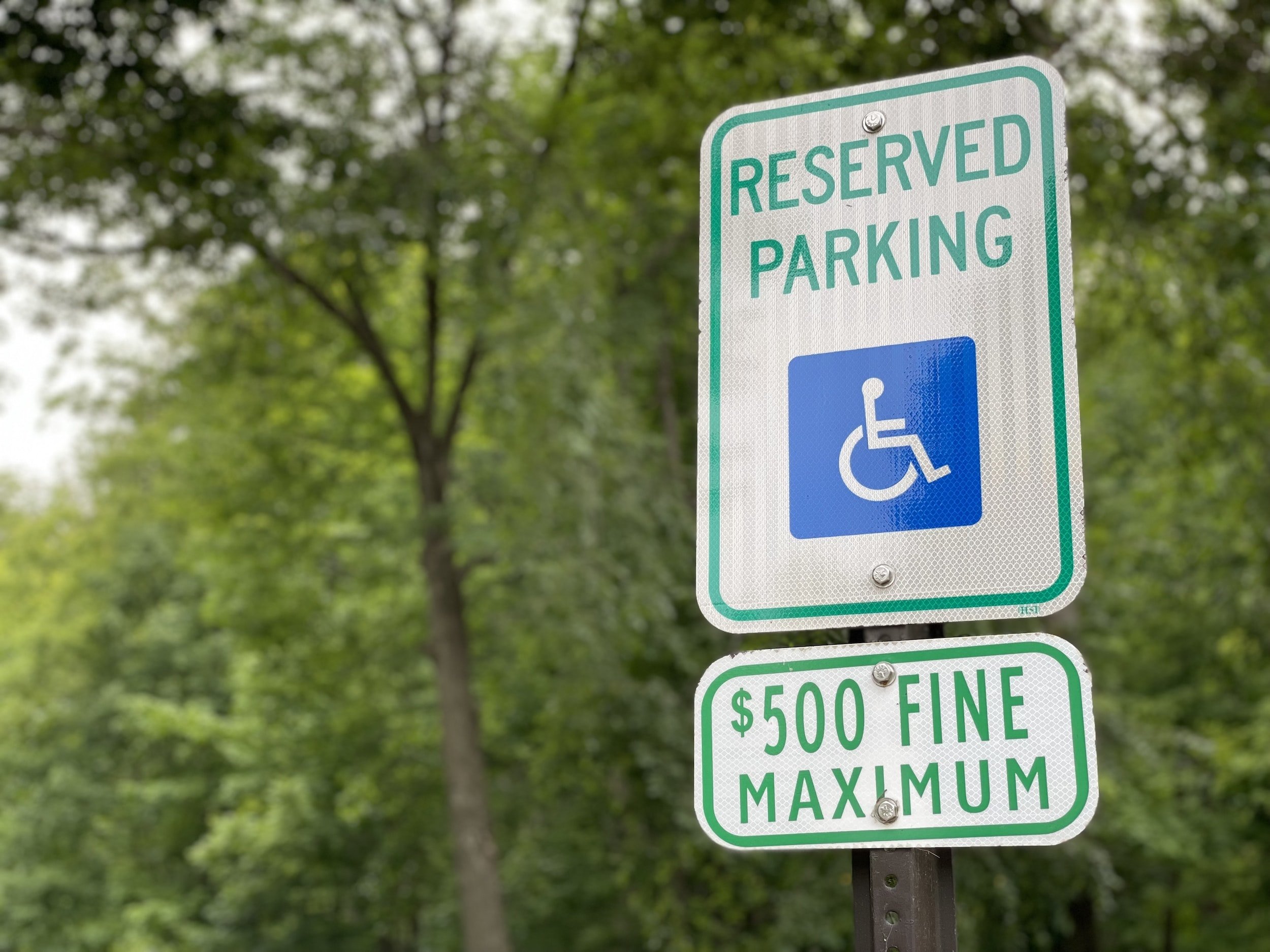Certified Access Specialist | ADA Compliance Experts
Proactive Access LLC is a professional consulting firm with an expertise in construction-related accessibility. Our Certified Access Specialists (CASp) are ADA compliance experts and California disability access specialists. The role of a CASp Inspector is to educate business owners about the accessibility requirements that are applicable to their facility. Facilities that receive a CASp Report are granted special legal protections that mitigate exposure to ADA lawsuits.
Our Mission
To promote an accessible environment by providing businesses with the resources needed to achieve compliance and mitigate exposure to ADA lawsuits.
Disability Access in the Built Environment
Approximately one in four Americans have a disability that impacts a major life activity. Disabilities come in many forms including but not limited to: mobility, hearing, vision, cognition, self-care and independent living. As the US population ages, the growing number of people with disabilities is increasing the need for accessible spaces. The Americans with Disabilities Act (ADA) was signed into law more than 30 years ago and yet people with disabilities still can’t access many businesses because of architectural barriers. In most cases, business owners do not intentionally prevent access. They just don’t know what the code requirements are. Or they assume that barrier removal will be too costly to address. The reality is that the many improvements to accessibility can be made with minimal cost or effort.
Beyond providing an accessible environment to meet the minimum ADA requirements, there is also an economic opportunity that many businesses overlook. Improvements to disability access can attract a loyal client base (25% of the US Population) that non-compliant businesses miss out on.
We are Certified Access Specialists (CASp)
The term “CASp” is an acronym that stands for Certified Access Specialist. The CASp Program was created upon the passage of CA Senate Bill 1608 in 2008. The intention of SB 1608 was to create a resource to California business owners who were facing a growing number of “ADA Lawsuits”. As a result, the State of California began certifying experts in field of accessibility known as Certified Access Specialists (CASp). To become a CASp, individuals are rigorously tested by the Division of the State Architect to demonstrate specialized knowledge of applicability of state and federal construction relates accessibility standards.
The primary role of a CASp Inspector is to evaluate accessibility compliance at existing facilities. Upon completion of a CASp Inspection, Certified Access Specialists generate a CASp Report that details his or her findings. This confidential report is the foundation of a business’ barrier removal strategy. As owners remove barriers over time, accessibility improves and exposure to an ADA lawsuit decreases.
To incentivize businesses that receive a CASp inspection report, the State of California grants special legal benefits that deters inspected facilities from being targeted by serial litigants. CASp Inspected facilities are granted “Qualified Defendant” status in the event that a construction-related accessibility legal complaint is filed. California courts allow Qualified Defendants to immediately request a 90 day stay to postpone legal proceedings. During that time, a qualified defendant can request an Early Evaluation Conference (EEC) to resolve the complaint without going to trail. The foremost incentive is the reduction in statutory damages from $4,000 per occurrence to $1,000 per occurrence. The legal benefits of receiving a CASp Certification are an effective deterrent against high frequency litigants who file many “ADA lawsuits” demanding monetary compensation.
A Proactive Approach to ADA Compliance
The term “ADA” is an acronym for the Americans with Disabilities Act. The ADA is the landmark civil rights legislation that prohibits discrimination against people with disabilities. The ADA was signed into law in 1990 and since then, all new and existing facilities across the country have been required to comply with the ADA Standards of Accessible Design. Unfortunately, many businesses and property owners assume that they are “grandfathered” because their facilities predate the ADA. The reality is that there is no “Grandfather Clause” in the ADA. All public accommodations including privately owned facilities that are open to the public must meet the minimum standards for ADA compliance regardless of the facility’s age. Those that falsely assume that they are “grandfathered” or choose to bury their head in the sand often find themselves exposed to an ADA lawsuit.
California businesses must also observe the California Building Code (CBC) and “Path of Travel” requirements. The CBC is more restrictive than the ADA but applied very differently.
The ADA Standards and CBC can interact and sometimes contradict each other. This leaves owners, contractors and even architects confused about which standards to apply. Our Certified Access Specialists (CASp) take the guess work out of accessibility compliance. We consider all of the factors that are unique to each facility and determine what is actually required. We educate owners about their facilities so that they can make informed decisions about disability access. With each improvement that is made, accessibility within the facility increases and exposure to an ADA lawsuit decreases. A proactive approach to ADA compliance can save thousands of dollars.
“All outcomes are costly if an accessibility claim is filed against your business. Proactively improving disability access is the best way to protect your assets and accommodate all clients that visit your business.
— Cory Cabral, CASp 630
CASp Solutions for Accessibility Problems
Pre-Construction Due Diligence
-
Our CASp experts at Proactive Access have extensive experience reviewing architectural plans for ADA compliance and conformance with the current CBC standards (Title 24 - Chapter 11B).
-
Before getting too far into the design phase of your project, our CASp inspectors will survey the existing conditions of the site to determine if alterations to the path of travel will be required. This service prevents project delays and unexpected expenses during construction.
-
Due diligence is an important step to take before making big decisions. A CASp inspection of the property that you are interested in will help you determine if the facility is accessible to people with disabilities. If it is not, you may be exposed to an ADA lawsuit.
CASp Inspection Services
-
Not all inspections performed by a Certified Access Specialist will entitle the business to a CASp Certificate and all of the benefits that come with it. Only a CASp report generated in accordance to CRASCA regulations grant “Qualified Defendant” status to businesses. Our experts have performed hundreds of CASp inspections throughout California.
-
An accessibility inspection is similar to a CASp inspection except it does not come with a certificate or legal benefits. ADA Compliance Inspections are generally more limited in scope.
-
Some businesses want their facility reviewed for ADA compliance only and not under California building standards. This ADA Inspections service is often requested for facilities located outside of California and for some Title II facilities.
Legal Support
-
Our CASp inspectors have worked with many defense attorneys over the years. We have learned that many lawyers representing defendants desire a report that simply identifies if the allegations listed in a complaint are valid or not. A validation survey is limited to evaluating only allegations listed and associating a determination of “Valid” or “invalid”.
-
After architectural barriers to accessibility are removed, our CASp can survey the work performed to ensure improvement meets the applicable standards.
Common Accessibility Questions
-
The Americans with Disabilities Act of 1990 (ADA) is a federal civil rights law that prohibits discrimination of individuals with disabilities. It requires all facilities used by the public (public accommodations) to be accessible to individuals with disabilities. Since January 26, 1992, all new construction, additions and alterations are required to comply with the ADA standards. The ADA contains no “grandfathering” provisions. The applicable construction-related accessibility standards are based on the age of the facility and alteration history:
Facilities built or renovated Before January 26, 1992 are required to comply with the ADAS if it is “Readily Achievable” to do so.
Facilities built renovated Between January 26, 1992 & March 14, 2012 are required to comply with the 1991 ADAS.
Facilities built or renovated After March 15, 2012 are required to comply with the 2010 ADAS.
Maintaining an accessible environment (ADA Compliant) is an ongoing obligation that every business must take seriously. Failure to maintain compliance can leave businesses and properties exposed to ADA lawsuits.
-
The federal ADA Standards have only been updated once (2010 ADAS). The California Building Code is typically updated every 3 years.
The application of the current CBC is determined by the construction date and/or the alteration history. Unlike the ADA, changes to the CBC do not retroactively apply to existing areas and elements that were built in compliance with the accessibility standards applicable at the time of construction.
Whenever an area or element is altered within a facility, the current standards apply to the alteration. In addition, elements along the “Path of Travel” that serves the area of alteration will be required to comply with the current standards.
-
A person is denied full and equal access to a place of public accommodation can result in a civil lawsuit on the basis of discrimination. A denial of full and equal access includes instances where a person experienced difficulty, discomfort, or embarrassment because of the violation.
If a defendant is found liable, the defendant is responsible for paying the plaintiff’s attorneys fees in addition to statutory damages.
Facilities that obtain a CASp inspection, completed according to CRASCA are considered “qualified defendants”. As a “qualified defendant” the State of California may reduce minimum statutory damages from $4,000 per occurrence to $1,000 per occurrence (visit by plaintiff). This benefit applies to CASp Inspected businesses that can demonstrate that all alleged construction-related violations were corrected within 60 days of being served with the complaint.
Without a CASp inspection, statutory damages of $4,000 may be assessed per occasion under Civil Code section 55.56.
-
Either or both can be sued. The ADA places the legal obligation to remove architectural barriers and maintain compliance of accessible features at a place of public accommodation on both the landlord and the tenant. The landlord and the tenant may specify within the terms of the lease who is responsible for which areas of the facility, but both remain legally responsible.
Additionally, under California law, the landlord or commercial property owner is required to state on every lease form or rental agreement executed after January 1, 2017, whether or not the premises have been inspected by a CASp.
-
There is no law that requires a property owner or business owner to hire a CASp. Retaining the services of a Certified Access Specialist (CASp) is voluntary.
That being said, local jurisdictions may highly recommend hiring a 3rd party CASp to review plans and evaluate existing facilities to prevent project delays for non compliance.
-
As a client, you can limit the scope of inspection to individual areas and elements or order an all inclusive CASp report. We encourage our clients to have all areas that are available to the public included in the CASp inspection. The “qualified defendant” status will not carry over to non-inspected public areas. The areas that are restricted to employees only do not typically need to be inspected.
-
The ADA states that existing facilities constructed before January 26, 1992, must remove architectural barriers that are “easily accomplishable and able to be carried out without much difficulty or expense.” This requirement is known as “readily achievable barrier removal.” An assessment of whether or not removal of barriers is readily achievable is a detailed process that takes the following into consideration:
Identification of barriers that prevent an individual from accessing goods and services at your business.
The costs involved to remove or mitigate the existing barriers.
Examination of the overall financial resources of the business or property.
Our Certified Access Specialists can assist with identifying existing barriers however, we do not examine financial resources of our clients. Therefore, Proactive Access LLC does not make assessments of “Readily Achievable Barrier Removal”.
Upon receipt of a CASp Report in accordance with CRASCA, we recommend consulting with legal counsel and a CPA to determine which high cost barriers are “Readily Achievable” to remove.
-
A CASp can inspect facilities to determine compliance of construction-related accessibility standards, but a CASp cannot issue a certification that a facility is compliant. A CASp can only issue a disability access inspection certificate, which is a record that a CASp has performed an accessibility inspection of your facility, and that you hold an inspection report and schedule according to the requirements of CRASCA.
-
A CASp inspection report does not expire and inspected facilities with “qualified defendant” status remains valid provided no additions, alterations, or improvements are made to the inspected area after you have achieved compliance.
-
No. Our Certified Access Specialists do not have enforcement authority. Proactive Access LLC advises our clients about the accessibility of their facilities but we never enforce codes or report our findings to government entities.
-
The legal protections granted to “Qualified Defendants” are applicable to facilities that were CASp Inspected prior to a lawsuit being filed.
If a construction-related accessibility lawsuit is filed, seeking the services of a CASp is still highly recommended. A CASp inspector can support your legal counsel by surveying the alleged violations to determining their validity.
A CASp inspection performed after receiving a lawsuit will not provide legal protections applicable to a current lawsuit. However, a CASp report prepared in accordance with CRASCA can prevent further lawsuits from being filed by other individuals.
Free CASp Inspection & ADA Compliance Consultations
Navigating ADA compliance and construction related accessibility requirements is not a straight forward task. Our ADA Compliance Inspectors are here to give you expert guidance. Whether you are an owner, designer, attorney or contractor, we are committed to providing you with the knowledge and resources necessary to conform with accessibility requirements and avoid an ADA lawsuit. Contact us for a free consultation today.
Professional Certifications & Memberships

Serving All of California
We are based in San Diego but we serve the entire state of California including:
San Diego, Los Angeles, Orange County, Riverside, San Bernardino, Ventura, Imperial, and more!



















The ADA and Chapter 11 of Title 24 are both sets of building standards aimed at ensuring accessibility for individuals with disabilities. However they are associated with different jurisdictions and have some differences in scope and technical requirements. In this article, we will explore some of the differences between the two standards and how they may interact.